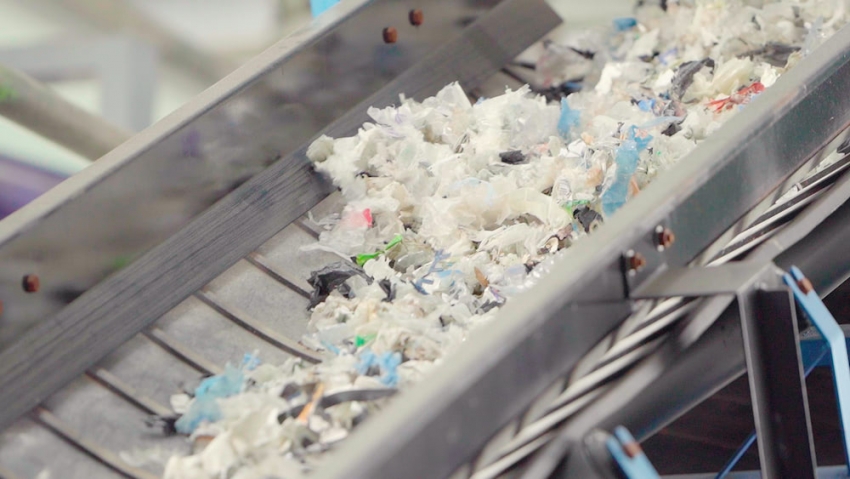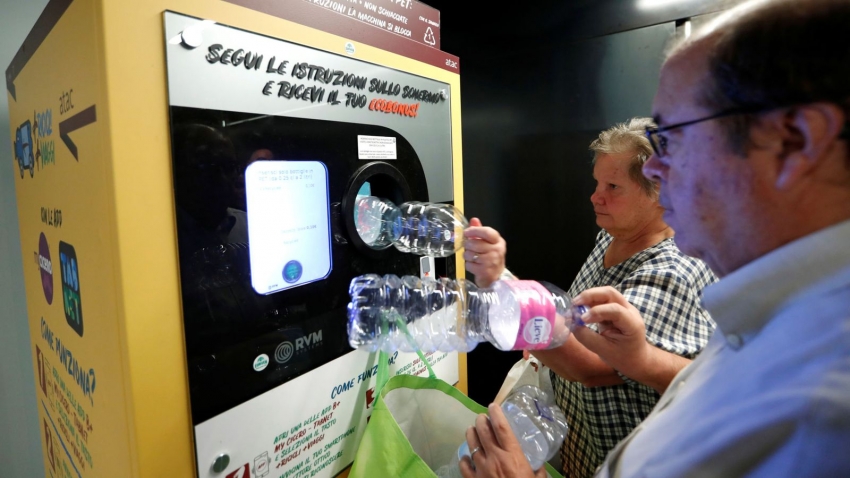Over the last two decades, Environmental Management Hierarchy has been advocated regionally and worldwide, coinciding with the advent of the circular economy, a new economic model built on regenerative natural resource management. The efforts were launched in response to dwindling quantity and quality of natural resources, where the impact of consumer waste has intensified, and climate change is affecting people across the world.
Nonetheless, it is critical to continue to make significant and continuous efforts to recycle these resources back into the system. In this article, Chemicals Business, SCG, has compiled a list of reasons why our recycling efforts have been largely unsuccessful.
Challenge #1: Inadequate infrastructure and management mechanism
According to the UN's 2018 report, an estimated 11.2 billion tons of solid waste are collected each year globally, with recycling rates varying significantly from country to country. It is worth noting that developed countries have a higher recycling rate than developing countries, owing to a lack of infrastructure and efficient management systems.
Although Thailand has designated recycling waste management as a national priority, investment in a comprehensive infrastructure and recycling waste management systems still requires clarity and cohesion. The said investments entail everything from establishing comprehensive drop-off points for recyclable materials, promoting the development of the recycling waste auction market, optimizing trading efficiency in recycling warehouses, and encouraging entrepreneurs to adopt a resource-efficient approach to business management based on Enterprise Resource Planning (ERP) guidelines.
To transcend this challenge, Chemicals Business, SCG, an organization that focuses primarily on resource maximization based on the circular economy, has initiated the Bang Sue Model, a project that promotes waste management system among SCG employees, and an expanded waste management version for communities called Waste-Free Community in Rayong. SCG's efforts also include developing "KoomKah," an application that aids in the facilitation and enhancement of waste bank productivity.
Challenge #2: Motivated by Variety of Incentives
Although regulations and training on solid waste management are in place to encourage organizations, the general public, and the community to comply with the concept of resource utilization maximization, at the individual level, the main challenge lies. Aside from making people see recycling as a means of making the world a better place, the question of how to make waste recycling a norm and more accessible to everyone remains. There are some notable examples that worth nothing here: a recycling campaign in Italy where passengers can drop off 30 plastic bottles to a recycling machine and earn a ticket valid for 100 minutes of travel or in Surabaya, Indonesia, where five bottles are equal to a free two-hour bus ride that a bus can help collect up to 7.5 tons. It is also crucial to foster small and medium-sized businesses in a spectrum of areas, including financing, marketing, management, adoption of innovations, promotion of research and development, and strengthening government agencies' conciseness and agility.
Challenge #3: Recycling must be accessible and actionable
We often believe that recycling is instantly actionable. However, given the reality of having to extract remnants of pearl milk tea from the plastic cup before putting it away, you may want to take a moment to consider how we can manage this waste item, and this may deter people. This is only one of the numerous reasons why most people find it inconvenient and use it as an excuse to avoid taking environmentally responsible actions. Another psychological reason for non-recycling behavior is that the benefits and drawbacks of this action do not have immediate effects, which means that many people cannot understand and rationalize waste sorting before disposal.
As a result, psychologists propose providing a collection of knowledge that clearly exhibits environmentally unfavorable conduct and presenting arguments that are straightforward to comprehend, such as motivational publicity based on specific social datasets, established beliefs and practices, fear as a motivator, and recommendation implementation. These psychological processes are collectively referred to as "Nudge." A Public Service Announcement (PSA) ad series for recycling in Arizona, the United States, is an excellent example of how communication can be used to achieve positive outcomes. Communities exposed to the advertising saw a 25% increase in recycling.
On the other hand, recycling is a another challenge that everyone faces around the world; nonetheless, getting started and working to find solutions to the problem is worthy of support. Chemicals Business, SCG, will be another endeavor to drive and develop resource efficiency and circulation efforts in a tangible manner.
Resources:








